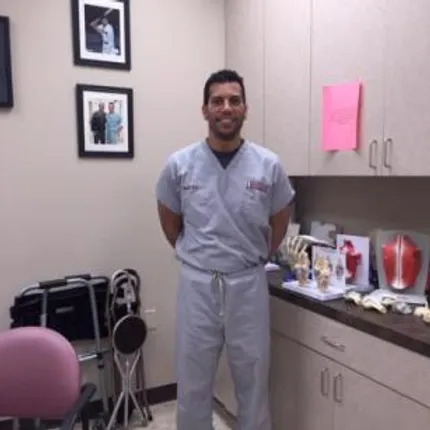Dr. James Morales Discusses How Mental Health Plays a Role in Athletic Recovery
Dr. James Morales Discusses How Mental Health Plays a Role in Athletic Recovery
Blog Article

In regards to sports healing, a lot of people think of bodily therapies: rest, snow, bodily therapy, and medication. But, an essential, frequently neglected facet of healing may be the intellectual side. Dr. James Morales New Jersey, a renowned activities medicine consultant, highlights that intellectual well-being plays an equally essential position in healing and performance. In this short article, we explore the connection between psychological wellness and running healing, drawing on Dr. James Moralesextensive experience dealing with athletes across a variety of disciplines.
The Mind-Body Relationship in Sports Recovery
Dr. Morales explains that the human body and mind are lavishly connected, and one can not fully retrieve without the other. An athlete who is mentally distressed, anxious, or frustrated will find it harder to recuperate from a personal injury or perform at their best. Psychological pressure may induce physiological reactions, such as improved muscle strain and reduced body movement, that may gradual the therapeutic process. However, positive emotional wellness may increase healing by selling rest, lowering inflammation, and increasing over all bodily health.
The Position of Psychological Resilience
Certainly one of the most important psychological attributes for players coping with incidents is intellectual resilience. Dr. Morales shows that resilience—the capacity to jump back from setbacks and stay concentrated despite adversity—is critical to an effective recovery. Athletes with solid psychological resilience are more prone to stay to their recovery programs, adhere for their rehabilitation exercises, and keep an optimistic prospect, which subscribe to quicker healing and better efficiency when they get back with their sport.
Visualization and Positive Considering
Dr. Morales usually incorporates psychological teaching techniques such as for instance visualization into his recovery plans. Players are taught to mentally rehearse successful movements and recovery scenarios. Reports reveal that visualization can stimulate the same neural pathways in mental performance as physical action, which supports the human body to recover and make for the return to action. Positive considering is still another effective tool. By focusing about what they can do rather than what they can not, players are more prone to remain determined, aimed, and determined with their rehabilitation.
Overcoming Psychological Barriers in Damage Recovery
Injury recovery could be frustrating for players, especially people who depend on their physical talents for success. Dr. Morales stresses the significance of approaching emotional barriers such as concern with re-injury, frustration, and loss in confidence. Players often worry about time for their sport following an injury, fearing they could maybe not be able to conduct at their prior level or may possibly reinjure themselves. Handling these issues through therapy, peace practices, and advice from instructors and medical practioners can help players regain their self-confidence and mental clarity.
The Power of Cultural Help
Finally, Dr. Morales worries the importance of social help all through recovery. Bordering oneself with positive, encouraging friends, household, and teammates can offer mental energy, minimize feelings of isolation, and boost motivation. Dr. Morales often encourages his patients to slim on the help program and participate in staff actions or emotional health workshops within their healing process. Social relationships and party help support athletes remain mentally engaged within their recovery and keep their spirits large because they function toward the full return to their sport.
In conclusion, the emotional side of activities recovery is just as important since the physical. Dr. James Morales teaches athletes that to recoup completely, they need to handle both their human anatomy and mind. By fostering psychological resilience, exercising visualization, overcoming mental barriers, and doing social help, athletes may improve their healing method and get back with their activities stronger and more focused than actually before. As Dr. Morales says, a healthier mind is equally as vital as a healthy human anatomy in reaching top running performance. Report this page